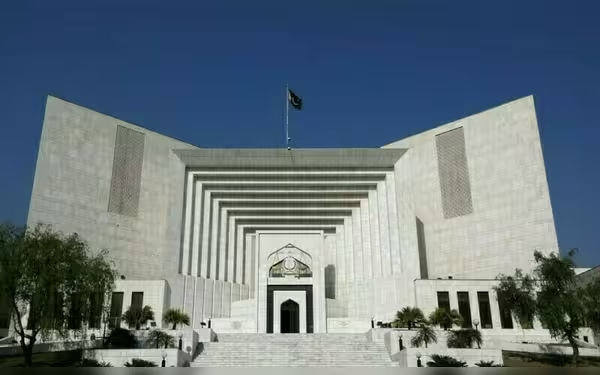Saturday, November 16, 2024 03:16 PM
Judicial Commission of Pakistan Meeting Ends in Disarray Over Constitutional Amendments
- JCP meeting marked by disagreement on constitutional amendments.
- CJP Isa reiterates commission's limited investigative authority.
- Tension raises questions about JCP's effectiveness and unity.
 Image Credits: dawn.com
Image Credits: dawn.comThe Judicial Commission of Pakistan's meeting ended in disarray due to disagreements over constitutional amendments, raising concerns about its effectiveness.
The recent meeting of the Judicial Commission of Pakistan (JCP) has concluded in a state of disarray, primarily due to a heated debate surrounding the proposed constitutional amendments. This gathering, which included 29 members, was presided over by Chief Justice of Pakistan (CJP) Qazi Faez Isa. The discussions were marked by a significant disagreement regarding the commission's authority to investigate the outcomes of the constitutional package.
During the meeting, CJP Isa emphasized that the commission was not entitled to delve into the results of the constitutional amendments, a point he had previously raised in the last meeting. This reiteration highlights the ongoing tension within the commission regarding its role and responsibilities. The JCP is co-chaired by Justice Syed Mansoor Ali Shah and Manzoor Malik, and it includes senior judges from various high courts, the Attorney General of Pakistan, Akhtar Hussain, as well as representatives from provincial bar councils.
The atmosphere in the meeting was reportedly tense, with members expressing differing opinions on the commission's mandate. The disagreement over the constitutional package has raised questions about the effectiveness and unity of the JCP, which is tasked with overseeing judicial appointments and ensuring the integrity of the judiciary.
As the JCP navigates these complex issues, it is crucial for its members to find common ground and work collaboratively. The judicial system plays a vital role in upholding the rule of law and maintaining public trust. Therefore, it is imperative that the commission addresses these internal conflicts and focuses on its primary objective: to enhance the judicial framework of Pakistan.
The disarray witnessed in the recent JCP meeting serves as a reminder of the challenges faced by the judiciary in Pakistan. It is essential for the commission to resolve its differences and move forward with a clear and unified vision. Only then can it effectively contribute to the development of a robust legal system that serves the interests of all citizens.













